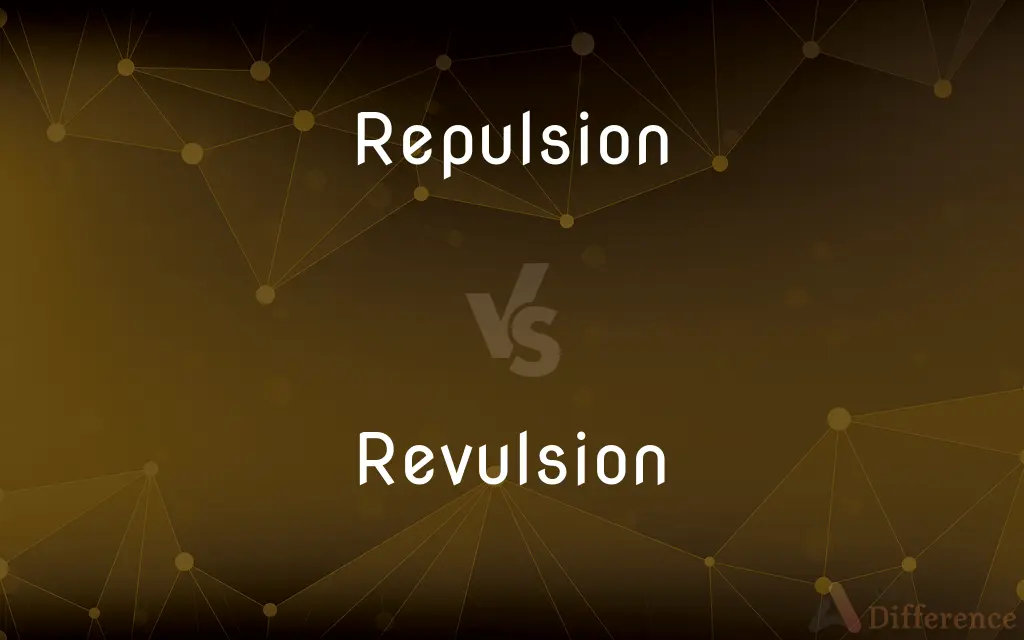Repulsion vs. Revulsion — What's the Difference?

Difference Between Repulsion and Revulsion
ADVERTISEMENT
Compare with Definitions
Repulsion
The act of repulsing or the condition of being repulsed
The repulsion of an attack on the fort.
Revulsion
A sudden strong change or reaction in feeling, especially a feeling of violent disgust or loathing.
Repulsion
Extreme aversion
Felt nothing but repulsion at the remark.
Revulsion
(Archaic) A withdrawing or turning away from something.
Repulsion
(Physics) The force that causes particles or bodies to repel one another, as from having the same electric charge or magnetic polarity.
ADVERTISEMENT
Revulsion
(Medicine) The reduction of superficial inflammation in an affected body part, as by topical agents, in order to decrease inflammation in adjacent structures.
Repulsion
The act of repelling or the condition of being repelled.
Revulsion
Abhorrence, a sense of loathing, intense aversion, repugnance, repulsion, horror.
Repulsion
An extreme dislike of something, or hostility to something.
Revulsion
A sudden violent feeling of disgust.
Repulsion
(physics) The repulsive force acting between bodies of the same electric charge or magnetic polarity.
Revulsion
(medicine) The treatment of one diseased area by acting elsewhere; counterirritation.
Repulsion
The act of repulsing or repelling, or the state of being repulsed or repelled.
Revulsion
(obsolete) A strong pulling or drawing back; withdrawal.
Repulsion
A feeling of violent offence or disgust; repugnance.
Revulsion
(obsolete) A sudden reaction; a sudden and complete change of the feelings.
Repulsion
The power, either inherent or due to some physical action, by which bodies, or the particles of bodies, are made to recede from each other, or to resist each other's nearer approach; as, molecular repulsion; electrical repulsion.
Revulsion
A strong pulling or drawing back; withdrawal.
Repulsion
The force by which bodies repel one another
Revulsion
A sudden reaction; a sudden and complete change; - applied to the feelings.
A sudden and violent revulsion of feeling, both in the Parliament and the country, followed.
Repulsion
Intense aversion
Revulsion
The act of turning or diverting any disease from one part of the body to another. It resembles derivation, but is usually applied to a more active form of counter irritation.
Repulsion
The act of repulsing or repelling an attack; a successful defensive stand
Revulsion
Intense aversion
Share Your Discovery

Previous Comparison
Constructive vs. Productive
Next Comparison
Bi vs. Pan














































